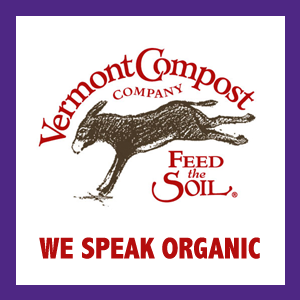Pricing can make or break your business, and you have to approach it with care - especially when making adjustments for customers buying in quantity. The less you charge for your product, the more certain you need to be that you are pricing it right, because the costs are going to be much closer to the price that you receive.
First, you’ve got the cost of the product. This is what it takes to actually make the thing - what it costs, including labor and overhead, to grow and harvest a carrot.
Second, you’ve got the cost of selling. This is the money and time that you spend to get the thing to market, sell it there, and get it back home. You might want to think of this as an entirely separate division of your farm - or even another “business” entirely - as the processes here bear very little relationship to those of actually farming.
If you do a farmer’s market, this is the time to load the van, drive to the farmer’s market, set up, sell sell sell, break down, load the van, drive back home, and unload the van. It’s the cost of fuel and a market stall. That’s a lot of time and money, and you should get a lot of money for it.
If you take orders from stores and restaurants, this is the time it takes to send out information about what you’ve got, answer questions, take the orders, put the orders on pallets, load the truck, write the invoice deliver the product, and drive back home. It’s the cost of fuel and boxes. It’s probably less time and money per carrot, and you’re probably going to get less money for it.
This is a key point: you lower your per-unit price when you lower your per-unit costs. If you are taking orders from a restaurant for one bunch of carrots at a time to make up a $25 sale that you deliver, that’s not a wholesale sale, even if it is a business-to-business sale. It should be priced at retail prices. (When my business shops at Staples, I pay the same prices that I do when I go there for my daughter’s back-to-school supplies.)
Likewise, when you sell something to a food hub or a distributor, it may not make sense to take a lower price than you already get for selling to stores and restaurants unless they are buying in a quantity that significantly reduces your cost per carrot sold.
Third, you’ve got the risk of selling. When you sell a product at farmer’s market, you harvest, wash, and pack that product without ever knowing if you will sell it. If it rains, if there’s a big game on, if traffic is bad… you might wish that you had taken less product to market. Every carrot you sell has to pay for the other carrots that you took but didn’t sell. (The bank charges higher interest for risky loans because they still have to make money on the loans that don’t get paid back.)
When you take orders before you harvest, you reduce your risk because you can harvest only what you’ve already sold. This lowers your effective cost per unit, because you don’t have the risk of harvested, but unsold, product.
Take the time to understand the why behind your pricing levels for different customers and different quantities, and you’ll be one step closer to making great pricing decisions.
First, you’ve got the cost of the product. This is what it takes to actually make the thing - what it costs, including labor and overhead, to grow and harvest a carrot.
Second, you’ve got the cost of selling. This is the money and time that you spend to get the thing to market, sell it there, and get it back home. You might want to think of this as an entirely separate division of your farm - or even another “business” entirely - as the processes here bear very little relationship to those of actually farming.
If you do a farmer’s market, this is the time to load the van, drive to the farmer’s market, set up, sell sell sell, break down, load the van, drive back home, and unload the van. It’s the cost of fuel and a market stall. That’s a lot of time and money, and you should get a lot of money for it.
If you take orders from stores and restaurants, this is the time it takes to send out information about what you’ve got, answer questions, take the orders, put the orders on pallets, load the truck, write the invoice deliver the product, and drive back home. It’s the cost of fuel and boxes. It’s probably less time and money per carrot, and you’re probably going to get less money for it.
This is a key point: you lower your per-unit price when you lower your per-unit costs. If you are taking orders from a restaurant for one bunch of carrots at a time to make up a $25 sale that you deliver, that’s not a wholesale sale, even if it is a business-to-business sale. It should be priced at retail prices. (When my business shops at Staples, I pay the same prices that I do when I go there for my daughter’s back-to-school supplies.)
Likewise, when you sell something to a food hub or a distributor, it may not make sense to take a lower price than you already get for selling to stores and restaurants unless they are buying in a quantity that significantly reduces your cost per carrot sold.
Third, you’ve got the risk of selling. When you sell a product at farmer’s market, you harvest, wash, and pack that product without ever knowing if you will sell it. If it rains, if there’s a big game on, if traffic is bad… you might wish that you had taken less product to market. Every carrot you sell has to pay for the other carrots that you took but didn’t sell. (The bank charges higher interest for risky loans because they still have to make money on the loans that don’t get paid back.)
When you take orders before you harvest, you reduce your risk because you can harvest only what you’ve already sold. This lowers your effective cost per unit, because you don’t have the risk of harvested, but unsold, product.
Take the time to understand the why behind your pricing levels for different customers and different quantities, and you’ll be one step closer to making great pricing decisions.




 RSS Feed
RSS Feed
